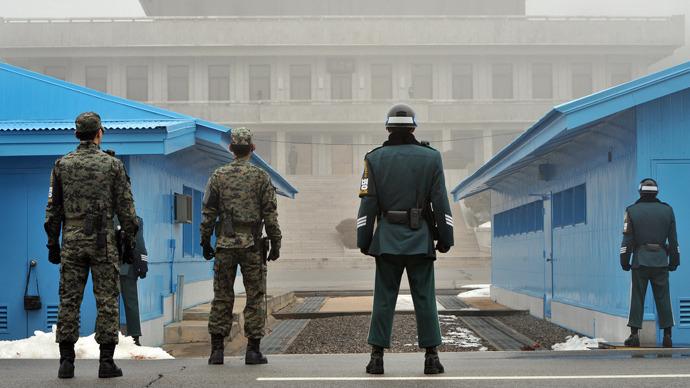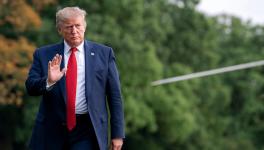As North Korea Restarts Vital Hotline, Will President Moon Jae-in Initiate Dialogue?

Amid US President Trump’s warmongering, the North Korean regime said it would restart a vital inter-Korean hotline that was suspended years back as the two Koreas locked horns. The move could ease tensions in the Korean peninsula, where North and South Korea are technically in state of war since 1953 when the armistice agreement was signed.
North Korea agreed to open the dialogue channel at the shared border village of Panmunjom. "By upholding a decision by the leadership, we will make close contact with South Korea in a sincere and faithful manner," said Ri Son-gwon, the head of North Korea's agency handling inter-Korean affairs. "We will discuss working-level issues over our potential dispatch of the delegation."
The South Korean Unification Ministry said that the two sides established contact over the hotline at the exact time that was agreed upon. This was the first official contact between the two countries in two years.
As North Korean leader Kim Jong Un said he is willing to send a team to participate in the Winter Olympics in South Korea, in response, South Korean President Moon Jae-In called for swift measures during a Cabinet meeting to smooth North Korea's participation in the Olympics.
It is interesting to note that President Moon came to power last year with a promise to engage with the North for a peaceful resolution of the crisis. Also, Moon’s election was seen as a rejection of neoliberal policies at home and of US fueled tensions with the North.
Moon, who was human rights attorney, had replaced Park Geun-hye after she was impeached and forced to resign from the office in March. Park faced massive protests against her regime that saw millions of people coming out into the streets of Seoul. She is the daughter of former dictator president, Park Chung-hee, who led a brutal anti-communist purge in South Korea during the 1960s and 70s.
Moon’s policy, according to experts is based on the ‘Sunshine Policy’, following the path of former liberal presidents Kim Dae-jung and Roh Moo-hyun. The policy was meant to soften North Korea’s attitude towards South Korea based on based on the traditional Korean ways of dealing with adversaries by giving them gifts to prevent them from causing harm.
As Moon steered his presidency, very soon he went on a different tangent from his initial plans. The United States, which has deployed 25,000 US troops and THAAD anti-missile batteries in South Korea soon began putting pressures on Moon’s government. US President Trump’s sabre-rattling and the threat of complete annihilation of North Korean regime quickly escalated, threatening to turn the crisis into a full-blown nuclear war.
After months of US-South Korea military drills against North Korea and Pyongyang nuclear-capable ballistic missile launches and testing of a thermonuclear bomb, the New Year presented hope for some resolution to the crisis.
As North Korea extended an olive branch, Moon also responded by paving way for further dialogue. "The restoration of the communication channels means a lot. It is assessed that (we) are headed to setting up a structure through which contacts can be made on a regular basis," presidential press secretary Yoon Young-chan said.
In November, President Moon had described the Winter Olympics as an opportunity for inter-Korean peace and reconciliation and expressed hope that North Korea would participate.
The decision by Moon was considered by many as a welcome step in the move towards establishing an independent North Korea policy without US intrusion.
But the crucial question remains that whether Moon will be able to usher a peaceful resolution or crumble to Trump’s hawkishness.
"The South Korean government, being quite frightened about Washington's bellicosity, is quite ready to welcome the North Korean initiative, and this might lead to an annoyance in the US," said Andrei Lankov from Seoul's Kookmin University.
The US seems to be quite upset with the ‘positive’ development in the region. Trump and his administration have already begun trying to destabilise the move by both Koreas to engage and stressed on the pre-condition of abandoning nuclear program by Pyongyang.
US envoy to UN, Nikki Haley, questioned the wisdom of an inter-Korean dialogue. “North Korea can talk with anyone they want, but the US is not going to recognize it or acknowledge it until they agree to ban the nuclear weapons that they have,” Haley told reporters in New York on Tuesday.
Get the latest reports & analysis with people's perspective on Protests, movements & deep analytical videos, discussions of the current affairs in your Telegram app. Subscribe to NewsClick's Telegram channel & get Real-Time updates on stories, as they get published on our website.























